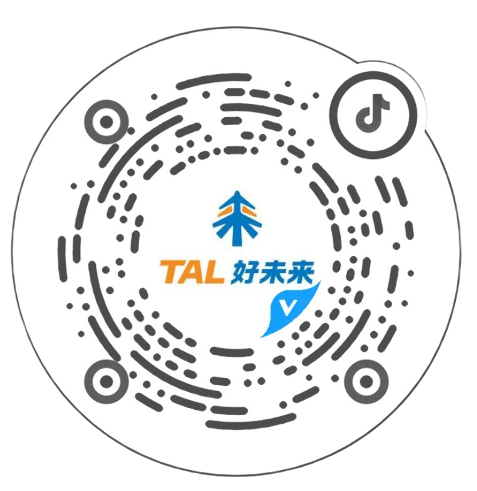




"With the rapid advancement of technology, traditional educational methods have become increasingly inadequate to equip us with the ability to adapt to the future." Yang Songfan, head of the TAIL CAMP at haoweilai AI Lab, shared his views on the education industry with the participants at the 2018 TAIL CAMP. In his eyes, with the ever-increasing speed of technological development, many problems encountered today have no precedent, so we need to have the ability to use existing knowledge to solve unknown problems.
Educational issues are foundational problems that can continuously produce compounding outcomes. When better educational resources are provided to the recipients, they are able to live better lives and provide greater value to society. This virtuous cycle is of utmost importance.

Yang Songfan, head of haoweilai AI Lab
Three themes, 1700 applicants, 8.5% acceptance rate
As one of the most popular technologies today, artificial intelligence has been deployed in various industries such as internet finance, autonomous driving, and e-commerce, but the education sector has not given it enough attention. In Yang Songfan's view, this is the opportunity for AI+Education.
Consequently, identifying and cultivating high-potential tech talent has been one of the key AI strategies that haoweilai AI Lab has been contemplating and exploring, and TAIL CAMP is an important means to realize this strategy. Based on the exploration of haoweilai AI Lab in "AI+Education," this camp focused on three areas: image recognition, natural language processing, and data mining, attracting more than 1,700 students from over 80 domestic and overseas universities, including Carnegie Mellon, Imperial College, Columbia, Tsinghua, and Peking University.
As the head instructor of the data mining training camp, Huang Lidong, a scientist from the haoweilai AI Lab's algorithmic science team, designed distinctive written test questions: the written test for the data mining sector did not actually test data mining! In his view, regardless of how "high-end" a data mining algorithm may be, ultimately it takes lines and lines of code to put it into practice. Two weeks might be sufficient for students to understand a machine learning algorithm, but developing a good programming mindset requires more time. Therefore, in the written test, he focused on evaluating the candidates' general programming skills.
Finally, 150 students were selected for the training camp after submitting their online assignments, resulting in an admission rate of 8.5%, nearly on par with the admission rate for Ivy League schools in the United States.
Full English reading, practical exercises, 386 assignments in two weeks
Over the two-week training, Yang Songfan, head of haoweilai AI Lab, and Professor Li Guoliang from Tsinghua University, alongside several other industry big shots, provided careful guidance to the students. They assisted the students in utilizing online data analysis tools provided by the training camp, combined with multiple industrial open data sets and deep learning frameworks such as TensorFlow/Keras/Caffe, to complete several exploration projects related to near-industrial problems.

Li Guoliang, Professor at the Department of Computer Science, Tsinghua University
Right from the first day, the students did not dare to slack off. Especially during the first week of the camp, many students had to familiarize themselves with the platform and language, while also quickly building projects and adjusting models and methods. The mentors, volunteers, and class teachers at the camp spared no effort to help the students keep up with the pace.
"I remember the night before the deadline of the first week, the class teacher even called me to ask about the progress of my project. One night when I encountered a problem during the training, the engineer was still answering questions in the group at 1 a.m." Chen Xi, an "excellent student" in the image recognition training camp, spoke highly of the considerate instructors and staff at the training camp.
In order to help students absorb as much as possible in the two weeks, the algorithm scientists at haoweilai AI Lab put in a lot of efforts in designing the written tests, course content, and post-class assignments. As pioneers in AI+Education, they have gained a deeper understanding than others that in addition to writing patents and papers, one of the most important abilities of AI+Education talents is solving various difficult issues encountered in the process of implementing technology.
To instill in students an awareness that aligns with international standards, mentor Huang Lidong specifically prepared English reading materials. In designing the course content, his goal was to ensure that everyone had a comprehensive understanding of a "small" problem. In addition to understanding classic recommendation algorithms, he wanted everyone to grasp the entire thought process behind data mining.
The students' enthusiasm for learning exceeded expectations. They sacrificed their rest time during the winter break and actively engaged in interactive discussions with mentors, teaching assistants, and classmates. At the end of the course, all 150 students submitted a total of 386 assignments, resulting in a graduation rate of 93.7%. Several students also applied for internship opportunities at haoweilai AI Lab, hoping to continue their path in AI+Education.
Cross-disciplinary learning, overcoming challenges, the journey of advancement for data novices
Zhang Wuming, an algorithmic scientist at the haoweilai AI Lab, was involved in the tutoring and communication for the image recognition training camp.
Image processing technology is one of the most rapidly developing areas in the past five years. Zhang Wuming assumed that the students would have a good foundation in image processing and algorithms and would be familiar with some classic deep learning algorithms.
However, to his surprise, a significant proportion of the students did not come from a deep learning or image processing background. Out of interest, they independently learned, based on their cross-disciplinary learning ability, and managed to pass the written test and be selected for the training camp, ultimately achieving good results, and some even secured internship opportunities at haoweilai AI Lab.
One such "novice" student without any relevant background was Wang Zequn. With his undergraduate major in energy and power, he is currently a high school math teacher who enrolled in the natural language processing training camp. In order not to fall behind in his studies, he studied for 15 hours a day, persisting for the entire two weeks.
Through the guidance of teaching assistants and sharing with classmates, he rapidly progressed. His ranking rose from 15th in the first week to 3rd in the second week, and his automated scoring assignment covered mainstream methods and even tried some relatively complex deep learning methods.
"I gained a lot. From being a novice in NLP to being able to comprehensively explain NLP knowledge to others, I am very excited. I feel that the sleepless nights over the two weeks were worth it," said Wang Zequn. This training camp, which exceeded his expectations, not only helped him fill the gaps in his knowledge but also gave him the confidence and anticipation to continue his studies in the field of natural language processing.
Practical exercises, friendly competition, the implementation of AI+Education exploration
The TAIL CAMP provided students with a short-term, high-intensity, and highly interactive learning environment. Instead of traditional single-thread teaching of "teach and learn," the training camp encourages students to actively explore and learn from different perspectives and approaches in solving real-world problems. Through this all-around and three-dimensional learning environment, TAIL CAMP hopes to convey the idea to the students that only active learning is effective learning.

Another outstanding student, Chen Wenfan, in the natural language processing training camp pondered on how to design a practical product in the second week of the assignments. He even reached out to his former high school English teacher with the idea of using the knowledge gained from the training camp to develop an automated grading program for the teacher. After discussing with the teacher, he began thinking about real-world issues such as cross-topic models and the impact of differing word counts.
"Education is a perennial topic for humanity, but the current education, both in content and form, has outdated aspects. Therefore, I truly believe that AI+Education presents an opportunity for educational reform." Chen Wenfan felt that he was revitalized during these two weeks at the training camp and commented, "TAIL CAMP has given me a great start to 2018."
During the sharing session at the closing ceremony, the most frequently mentioned keyword by the students was "sharing." "Some seemingly basic classification problems actually include a lot of techniques. I remember that some classmates shared the training results obtained using different activation functions and initialization in the group, and some classmates used transfer learning to optimize training. Everyone's various methods complemented each other during the exchanges." As an active participant in the group, student Chen Xi sincerely expressed her view of the training camp as a large community where everyone helps each other and progresses together.
Chen Fei, a scientist at haoweilai AI Lab, was very excited about the form and results of this training camp: "We can help more people understand what 'AI+Education' is all about, change their perception that education is far from AI, and introduce AI talents to improve the situation where AI talents are disproportionately concentrated in purely technical fields."
February 13 was the 28th day of the twelfth lunar month, and it was also the day when the 2018 TAIL CAMP practical training camp came to a close. The training camp presented awards such as "Excellent Assignment," "Excellent Student," "Busy Bee," and "Outstanding Volunteer" to the students, while also providing customized cards and gifts to those who received internship offers. Several outstanding student representatives shared their thoughts and feelings during the live broadcast.
"This training camp was completely different from what I had imagined." Chen Jiahao, an "outstanding student" from the data mining training camp, expressed surprise. He had initially thought it was simply a renamed training class but later discovered it was more like a competition, with the presence of many "bigshot" figures. "Some of the approaches mentioned by fellow students were truly unimaginable to me, which made me appreciate the allure of communication and writing. Being able to make friends here was my biggest gain at the training camp," Chen Jiahao said.
While the training camp has concluded, the talent development journey at haoweilai AI Lab continues. "haoweilai AI Lab has created TAIL CAMP to provide more opportunities for learning and improvement to a larger number of people at no cost. It also provides first-hand information for the industry to carry out AI-related research. We believe that this kind of culture is more conducive to the growth of young minds," explained Yang Songfan. As a leading enterprise in the AI+Education field in China, haoweilai has been persistently and diligently working on pioneering AI talent development, aiming to attract more outstanding talents to enter the education industry.